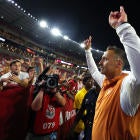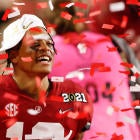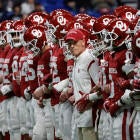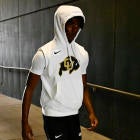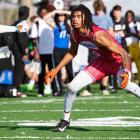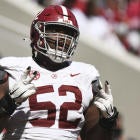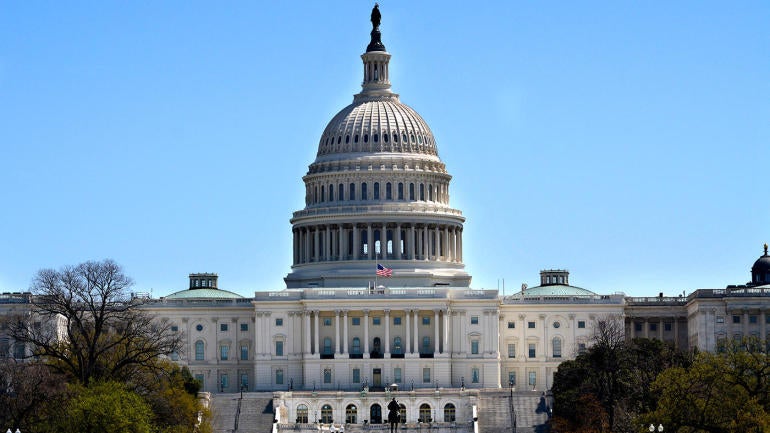
College athletes would be considered employees who are able to collectively bargain for basic labor rights if a new Congressional bill introduced Thursday morning eventually becomes law.
Sens. Chris Murphy (D-CT) and Bernie Sanders (D-VT) have sponsored the College Athlete Right To Organize Act in the Senate. The bill defines "any college athlete as an employee if they receive direct compensation" from their school in terms of scholarship money.
That presents a direct challenge to the NCAA's long-held operating principle of amateurism that has allowed it to maintain control over college sports for decades.
The bill would prohibit any scholarship that would keep an athlete from collectively bargaining for their rights. Scholarships would be defined as compensation that would give athletes the right to collectively organize and have a say in their working conditions. Companion legislation was also introduced in the House of Representatives by Reps. Jamal Bowman (D-NY), Andy Levin (D-MI) and Lori Trahan (D-MA).
The language of the bill would amend the National Labor Relations Act. Previously, the National Labor Relations Board chose not to certify Northwestern players as employees when they attempted to unionize in 2015.
It's not clear how the bill would impact the implementation of ongoing name, image and likeness legislation.
The NCAA responded swiftly with a statement following the bill's introduction.
"College athletes are students and not employees of their college or university. This bill would directly undercut the purpose of college: earning a degree. The NCAA and its member schools support student-athletes through scholarships -- many of which cover their full cost of education debt free -- and numerous other benefits. NCAA members also are committed to modernizing name, image and likeness rules so student-athletes can benefit from those opportunities but not become employees of their school. We will continue to work with members of Congress to focus on issues that align with our priorities. But turning student-athletes into union employees is not the answer.
"Big time college sports hasn't been 'amateur' for a long time," Murphy and Sanders said in a statement, "and the NCAA has long denied its players economic and bargaining rights while treating them like commodities. ... It's a civil rights issue, and a matter of basic fairness."
A portion of the bill reads as follows:
"College athletes face exploitative and unfair labor practices by the National Collegiate Athletic Association ... (NCAA) and its member institutions, primarily through the denial of the basic economic and labor rights of such athletes, which the NCAA and its member institutions have justified by defining college athletes as amateurs.
"The NCAA and its member institutions have denied college athletes a fair wage for their labor by colluding to cap compensation; they maintain strict and exacting control over the terms and conditions of college athletes' labor; and they exercise the ability to terminate an athlete's eligibility to compete if the athlete violates these terms and conditions. [...]
"To establish more equitable terms and conditions for college athletes' labor, college athletes need representation of their own choosing to negotiate collective-bargaining agreements with their respective colleges and the athletic conferences that help set rules and standards across an entire league."
Earlier this year, Murphy introduced the College Athlete Economic Freedom Act, aimed at giving athletes their NIL rights.









